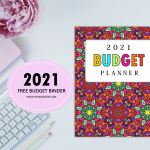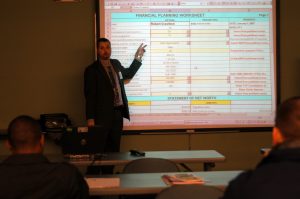
Presented by Paystrubmakr.com  By John Wolf and Tom Cullen CPA
By John Wolf and Tom Cullen CPA
World Health Organization
To prevent infection and to slow transmission of COVID-19, do the following:
-
Wash your hands regularly with soap and water, or clean them with an alcohol-based hand rub.
-
Maintain at least a 1-meter distance between you and people coughing or sneezing.
-
Avoid touching your face.
-
Cover your mouth and nose when coughing or sneezing.
-
Stay home if you feel unwell.
-
Refrain from smoking and other activities that weaken the lungs.
-
Practice physical distancing by avoiding unnecessary travel and staying away from large groups of people.
- Coronavirus who
Best Personal Budget Software Apps
We have been discussing budgeting, and that is not always the sexy conversation starter when you are hanging out with friends and family, but what is very sexy is having figured out how to manage your own money. Budgeting means thinking about how much money you are making and spending and using that knowledge to spend the money you have in the best possible way. It’s your money; you should spend it how you want!

This post is a continuation of the prior one on budgeting and so if you get lost below, go back to the prior blog 🙂
Below we continue the five basic budget rules:
Rule #3: Savings – 10%
Saving is not an asset. A savings program alone will not make you rich. However, savings is necessary to develop wealth and must be approached aggressively. With limited assets, you can stake only a small investment venture, and more importantly, your ability to diversify is limited. Thus, I recommend saving 10% of your gross income.
Savings is a verb, not a noun. It’s a form of deferred investing. The purpose of savings is to keep pace with taxes and inflation (i.e., preserve buying power) and thereby accumulate investment funds. Once you have saved a substantial sum, it should be used to acquire an investment. The purpose of investments is to beat taxes and inflation and thereby build wealth.

Rule #4: Education – 10%
In all societies, youth is thought of as the time for learning. When people in our culture have reached their mid-20s, they are expected to have mastered the skills needed to support themselves. However, education is not an event; it is a process.
Financial markets, investment vehicles, and tax laws change frequently. Exist- ing knowledge must constantly be updated. Thus, education must be an- nual budget item and should not be limited to formal institutional learning. Spend 10% of your income on continuing the practical education that motivates you to act (i.e., take a risk) and teaches you financial principles.
All other elements of your financial plan come to nothing if you have a weak commitment. Part of the responsibility of commitment is accepting the responsibility for educating yourself.
Outlays for educational seminars, materials, publications, and professional services can result in savings many times over. These expenditures should be considered as spent on investments that will produce a future return.
Rule #5: Keep Your Benefits
Budgeting not only requires regular periodic savings but, also a stable level of expenditures so that sudden inflows of cash (i.e., windfalls) can be added to investments. 50% of any benefit or “found” money (e.g., inheritances, tax refunds, gifts, salary raises, etc.) goes to savings, and the other 50% can be “blown” on lifestyle without any feeling of guilt.

A Word about Budgeting
Budgeting is often considered difficult, tedious, restrictive, and impractical. However, there are several ways to overcome a negative outlook on budgeting:
- Change the word “budget” to “overhead” and view management of your cash flow as a business endeavor;
- Participate in planned investment programs;
- Set budgeting benchmarks that suit your way of life;
- Use a credit card or write a check for most expenditures; and
- Remember, it takes time to build up sizable savings.
Budgeting is fun (maybe? I think so!!!) and can help you achieve financial empowerment. paystubmakr.com feels that everyone should be able to reach this, and we want to help you get there. Feel free to use our pay stub maker to print instant paystubs or calculate what you would make under different scenarios.
paystumbmakr.com team thanks you for a visit and reading this blog Pays tub online About pay stubs
Learn how to create your pay stub
paystubmakr.com
Disclaimer: John Wolf and paystubmakr.com are making a total effort to offer accurate, competent, ethical HR management, employer, and workplace advice. We do not use the words of an attorney, and the content on the site is not given as legal advice. The website has readers from all US states, which all have different laws on these topics. The reader should look for legal advice before taking any action. The information presented on this website is offered as a general guide only.
